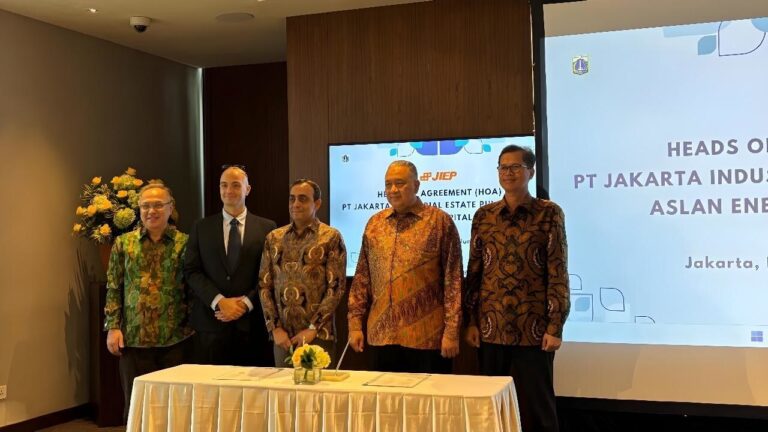Today’s NYT Mini Crossword Clues And Answers For Tuesday, June 17th
Need assistance with today's NYT Mini Crossword? The publication offers helpful hints and answers to guide solvers through the puzzle, ensuring a fun and engaging experience for crossword enthusiasts.
17 June 2025
Minnesota Shooting Suspect Allegedly Used Data Broker Sites to Find Targets’ Addresses
A recent incident involving a shooter who researched people search sites underscores the risks associated with easily accessible personal information. This alarming case raises awareness about the implications of data privacy in today's digital landscape.
17 June 2025
WhatsApp Introduces Ads in Its App
WhatsApp announces the introduction of ads in its Updates section, utilized by 1.5 billion daily users. While user data will be collected for targeted advertising, the platform assures that personal messages will remain ad-free.
17 June 2025
3D Sensing & AI Give Operatic Voice To Non-Verbal Performers
The article highlights the growing trend of utilizing technology, particularly 3D sensing and AI, to enhance the quality of life for physically challenged individuals, showcasing its potential to benefit humanity as a whole.
17 June 2025
Today's NYT Mini Crossword Answers for Tuesday, June 17
The New York Times Mini Crossword for June 17 offers engaging clues and answers, challenging puzzle enthusiasts. This daily brain teaser continues to captivate fans, providing a delightful way to sharpen problem-solving skills and enjoy wordplay.
17 June 2025
I use Rancher Desktop instead of Docker Desktop for managing my containers
The evolving developer toolkit highlights the importance of selecting the right desktop environment for container work. As Docker Desktop faces competition due to licensing changes, many developers are exploring more flexible, open-source alternatives in the Kubernetes-centric landscape.
17 June 2025
History of Forgotten Moon Bases
The History Guy explores the ambitious yet unrealized plans for a military moon base and other space technologies that emerged post-1968. The video reflects on how the 1967 Outer Space Treaty stifled these aspirations, leaving us dreaming of jet packs instead.
17 June 2025
Bitcoin production costs up 9% on higher hashrate, energy prices
The median cost of mining a single Bitcoin surged from $52,000 in Q4 to a 23% increase in Q1, continuing its upward trend into Q2, highlighting the evolving dynamics of Bitcoin mining costs.
17 June 2025
Asia Morning Briefing: Tron's Public Listing Might be Investors' 'Visa' Moment for Stablecoins
Tron DAO's TRX token remains stable amid its upcoming NASDAQ listing via a reverse merger, potentially offering investors access to a significant stablecoin network. Meanwhile, crypto inflows surged to $1.9 billion, highlighting strong institutional interest despite market volatility.
17 June 2025
Visual Intelligence is getting a big upgrade with iOS 26, and here's why I can't wait to use it again
At WWDC 2025, Apple unveiled significant upgrades to Visual Intelligence, enhancing screenshot functionality with actionable suggestions. While the anticipated AI-infused Siri update remains in development, these advancements promise a more interactive user experience for iPhone owners.
17 June 2025
Here Comes the Infinity Train
The long-awaited Gravity locomotive has arrived in Pilbara, Western Australia, ready to transport iron ore to China. This development aligns with Dr. Andrew Forrest's commitment to achieving real zero emissions across operations.
17 June 2025
OpenAI Snags $200 Million Contract With US Defense Department
OpenAI has secured a $200 million contract to pilot a program assisting the US Defense Department in exploring the application of artificial intelligence for various administrative and security functions, marking a significant step in military innovation.
17 June 2025
[Virtual Event] Strategic Security for the Modern Enterprise
Summary Not Available
26 June 2025
UFC 317 Full Fight Card: Bout Order Announced For Las Vegas PPV
UFC 317 promises an electrifying event with two title fights and a robust lineup for International Fight Week. The publication details the full card and highlights the stakes involved in this highly anticipated June 28 showdown.
17 June 2025
Emotionally Intelligent Men Are Choosing Better Partners; Here’s Why
Emotional intelligence has become a vital criterion for single men in selecting partners and fostering lasting relationships, highlighting its importance in modern dating dynamics. This shift emphasizes the value of emotional awareness in building meaningful connections.
17 June 2025
New Insights for Scaling Laws in Autonomous Driving
Waymo's latest study investigates scaling laws in autonomous driving, revealing that larger models trained on extensive data can significantly enhance motion planning and forecasting capabilities in autonomous vehicles. The findings promise to advance the future of AV technology.
17 June 2025
Auterion Strikes Deal With Taiwan for Unmanned Drone Software
Taiwan has secured a multi-year partnership with US defense technology firm Auterion to develop autonomous vehicles aimed at enhancing security against potential threats from China, marking a significant step in regional defense innovation.
17 June 2025
Aslan Energy Capital signs binding agreement in Jakarta for data centre with 120MWh BESS
Aslan Energy Capital is set to develop a 40MW data center featuring a 120MWh Battery Energy Storage System (BESS) in collaboration with Jakarta Industrial Estate Pulogadung, marking a significant advancement in Indonesia's energy infrastructure.
17 June 2025
GenusPlus awarded contract to build 400MWh BESS in Western Australia
Atmos Renewables has contracted GenusPlus Group for AU$65 million to construct a 400MWh battery energy storage system in Western Australia, marking a significant step in renewable energy development in the region.
17 June 2025
Move over Ray-Ban, Oakley Meta glasses are arriving this Friday
The Oakley Meta glasses, launching on June 20, promise to enhance athletic performance without a built-in display, marking a significant evolution in smart eyewear. Both Oakley and Meta are teasing this highly anticipated release on social media.
17 June 2025
Nat Geo’s ‘Underdogs’ Turns Weird Wildlife Into Must-See TV
Ryan Reynolds narrates Underdogs, a captivating Nat Geo series that combines humor and innovative technology to showcase the most unusual survivors in the animal kingdom. This unique blend promises to entertain and educate viewers about nature's resilience.
17 June 2025











![[Virtual Event] Strategic Security for the Modern Enterprise](https://eu-images.contentstack.com/v3/assets/blt6d90778a997de1cd/blt55e4e7e277520090/653a745a0e92cc040a3e9d7e/Dark_Reading_Logo_VirtualEvent_4C.png?width=1280&auto=webp&quality=80&disable=upscale)







